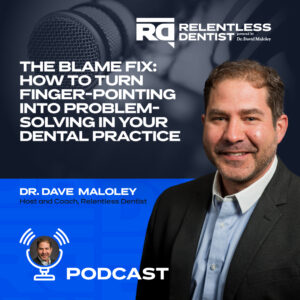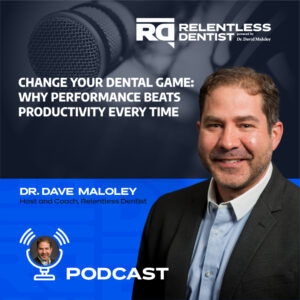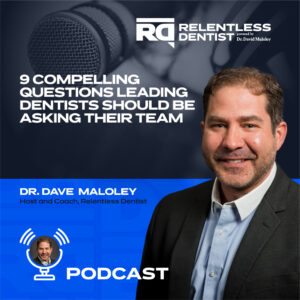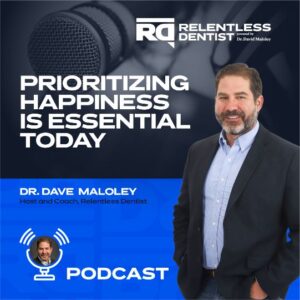by [email protected] | May 8, 2024 | Enhancing Culture
Podcast: Play in new window | Download
 Is your dental team tangled in the typical blame and gossip?
Is your dental team tangled in the typical blame and gossip?
Join us as we unravel the mystery behind why so many dental practices find themselves ensnared below the line and explore the transformative power of ascending to an Above-the-Line Culture.
In this episode, you’ll:
- Uncover Below the Line Dynamics: Explore the reasons behind the prevalence of below-the-line cultures in dental practices and their detrimental impact on practice efficiency.
- Chart Your Path to Above the Line: Follow Dr. Dave as he shares practical steps for cultivating an above-the-line culture, including team training and fostering open discussions.
- Harvest the Benefits: Learn about the tangible benefits of embracing an Above-the-Line Culture, from enhancing patient care to boosting overall job satisfaction among team members.
Don’t miss this enlightening episode filled with strategies to enhance your dental practice dynamics.
Ready to revolutionize your team’s approach and elevate patient experiences? Hit play now!
Are you ready to upgrade your practice? Need help implementing the Dentists Ascend Method? Don’t miss Dr. Dave’s presentation: ‘How to Build a Referral-Centric, High-Profit Dental Practice Without the Team Drama — Even if You’re Currently Overwhelmed.‘ This resource is tailored to help you enhance your operations, boost patient referrals, and increase profits while creating a self-managing team. Perfect for any dental practice owner looking to win in today’s challenging environment. Check it out now!
Key Quotes:
- “It’s imperative that we’re cognizant of where we stand in any moment of time, above the line or below the line, because our position is going to set the tone for the entire team.”
- “Rather than external factors beyond your reach, focus on those [things you can control]. This approach isn’t just about avoiding negative behaviors. It’s about actively cultivating a culture where every team member feels secure, valued, and understood.”
- “Blame is a natural and normal reaction because it comes from our instinctual defense mechanisms…But while blame might offer temporary relief from those uncomfortable feelings, it’s inherently toxic…it creates an environment where fear, defensiveness, and lack of accountability will thrive.”
- “Positive reinforcement will encourage the team to continue engaging in these powerful behaviors.”
- “Gossip…severely undermines trust and disrupts team cohesion…By enforcing a policy where negative topics must only be discussed with those who can contribute to a solution, you encourage direct, candid communication…creating a more positive and productive work environment.”
Featured on the Show:
- People: Jim Dethmer, is a celebrated coach, speaker, and co-founder of The Conscious Leadership Group, known for his work with CEOs and their teams. He leads forums and coach training in major cities and co-authored the bestseller “The 15 Commitments of Conscious Leadership,” focusing on enhancing organizational cultures through conscious leadership principles.
- I appreciate your feedback. Let me know what you learned and loved here: [email protected].


by [email protected] | Sep 13, 2023 | Prescriptions for your Practice
Podcast: Play in new window | Download
 Have you noticed a growing trend? Highly-trained dental professionals are leaving large Dental Service Organizations (DSOs) in search of deeper meaning and purpose in their work. They yearn for environments where they can make a profound impact, collaborate within cohesive teams, and drive innovation. As a dental practice owner, this shift presents a golden opportunity, and in this podcast, we’re here to guide you on positioning your practice as the ideal destination for these professionals while enhancing the experience for your team and patients.
Have you noticed a growing trend? Highly-trained dental professionals are leaving large Dental Service Organizations (DSOs) in search of deeper meaning and purpose in their work. They yearn for environments where they can make a profound impact, collaborate within cohesive teams, and drive innovation. As a dental practice owner, this shift presents a golden opportunity, and in this podcast, we’re here to guide you on positioning your practice as the ideal destination for these professionals while enhancing the experience for your team and patients.
At the core of this transformative shift lies a transition from the traditional Productivity Paradigm to a Performance Paradigm. It’s no longer just about the quantity of patients seen or procedures performed. Instead, it’s about the quality of care, nurturing relationships, and cultivating the practice environment. We’ll share insights and strategies on how to adopt and implement these changes within your practice.
- Why ‘Grow-Time’ Matters: Join me as I reveal an overlooked approach to building a winning dental team.
- Magnetize Your Operations: Dive into the art of transformational leadership that elite dental businesses use to attract and retain top talent.
- Future-Proofing for Success: Decode strategies for sustainable growth in today’s shifting economy. Intrigued? Tune in now!
Attention single-location dental practice owners who want to build a high-performance team so that you can take more time off while enjoying elevating profits: Learn about Dental Practice 3.0 and the new Dentists Ascend Mastermind
Listen in and find solutions to common practice issues at Prescriptions for Your Practice.
Key Quotes:
- “A cushy job isn’t necessarily an easy job, but it can make it feel as though life is easier when you have a great work life and the ability to have a life outside of work.”
- “A practice that prioritizes performance over mere productivity taps into the intrinsic motivation of its team.”
- “Grow time ensures that it evolves, that it adapts, that it thrives in an ever-changing landscape.”
- “If you’re making all the decisions, That looks like a heck of a lot of decision fatigue. And fatigue leads to stress, and stress leads to burnout.”
- “Engaged employees are much more likely to be committed, loyal, and motivated, and contribute to the practice’s success.”
Featured on the Show:


by [email protected] | May 10, 2023 | Prescriptions for your Practice
Podcast: Play in new window | Download
 Are you tired of being the bottleneck in your dental practice decision-making process and struggling to get your team members engaged? As a dental practice owner, your team’s success is directly tied to your ability to lead effectively.
Are you tired of being the bottleneck in your dental practice decision-making process and struggling to get your team members engaged? As a dental practice owner, your team’s success is directly tied to your ability to lead effectively.
Studies show that asking good questions leads to better decision-making, problem-solving, and overall team performance. By implementing these strategies, you can create an environment of continuous learning, greater productivity, and job satisfaction. Ultimately, this will lead to better patient care and help you elevate your dental practice to new heights.
In this episode, I discuss why telling is out and asking is in.
- So if you want to enhance employee buy-in and productivity…
- If you want to stop being the bottleneck to dental practice growth …
- If you want your team to have an owner mentality because you recognize that collaborative and decisive teams win in the next decade…
Tune in now!
Listen in and find solutions to common practice issues at Prescriptions for Your Practice.
Join The Leading Dentist Collective – the free collaborative community for single-location dental practice owners who want to unleash their people, profits, and purpose.
Key Quotes:
- “Excessive telling leads to lack of ownership, so they’ll think more like a renter than an owner.”
- “Ownership does not mean an equity position. It means a state of mind.”
- “Your job as a CEO is to point them towards the mission, give them a set of values to operate by, and then give them the tools and training they need to succeed and be autonomous in their job.”
- “By involving team members in this process, by involving them and improving the workflow, you’re gonna help them again create a sense of ownership. It’s gonna enhance their buy-in to whatever you’re doing.”
- “Asking team members for their input, you show that you demonstrate genuine interests, that you’re willing to customize it, that you’re gonna understand their love language or the language of appreciation because each person is gonna be wired slightly different.”
Featured on the Show:


by [email protected] | Jun 23, 2021 | Prescriptions for your Practice
Podcast: Play in new window | Download

Prioritizing Happiness Is Essential Today
Money won’t make you happy, but happiness will make you money.
At this point in your life, you must be able to distinguish pleasure from happiness. Although both bring joy and good feelings, they produce contrasting outcomes. Pleasure is momentary and visceral, while happiness is long-lasting and transcendental.
Listen in as I dig deeper into the realities of happiness. We will talk about positive psychology and the narcissism epidemic brought about by the disruption in social media. We’ll also look at how we can prioritize happiness, what it looks like tactically, and what you can do to guarantee a culture of happiness in your practice.
Tune in and find solutions to common practice issues at Prescriptions for Your Practice.
Key Quotes:
- “How do we get so unhappy? This is not an ok thing to do, but it almost becomes a norm.”
- “We see it on social media all of the time where people lose their minds and hurt people. They unleash on someone else in a situation that doesn’t call for it.”
- “We need to figure out ways not only to get to function but how do we get to high function.”
- “Most of my adult life, I spent on this “I’ll be happy when” treadmill.”
- “I need to supplement my natural behaviors with tools that allow me to enjoy the day and the now and be more present.”
- “The one thing that’s taking us down right now is technology.”
- “We’re utilizing technology tools to help leverage and make our lives better, but if we’re not careful, it can be super destructive.”
- “Social media, the more we use it, the lonelier we get. We call it social, but it’s not social at all.”
- “In a dental practice, the five people that most likely you will spend your time with are the people on your payroll, so you have to be very selective.”
- “Happiness is a continuum.”
Featured on the Show:


by [email protected] | Mar 17, 2021 | Magnificent Marketing
Podcast: Play in new window | Download
 I have a confession to make. My journey to business was not a piece of cake. You see, I’m an introvert posing to be an extroverted guy trying to connect with the community where I was building my practice. Then came Matthew Pollard, the person that I can relate to. He is the author of the well-received books “The Introvert’s Edge. How the Quiet and Shy Can Outsell Anyone” and “The Introvert’s Edge To Networking”. He’s also a confessed introvert. Yet, instead of making his introversion a handicap, he successfully transformed it into an asset and made it work to his advantage.
I have a confession to make. My journey to business was not a piece of cake. You see, I’m an introvert posing to be an extroverted guy trying to connect with the community where I was building my practice. Then came Matthew Pollard, the person that I can relate to. He is the author of the well-received books “The Introvert’s Edge. How the Quiet and Shy Can Outsell Anyone” and “The Introvert’s Edge To Networking”. He’s also a confessed introvert. Yet, instead of making his introversion a handicap, he successfully transformed it into an asset and made it work to his advantage.
Listen in as Matthew talks about how to find systems that will allow you to fill those skills gaps and leverage on your natural introverted strengths. Find a strategy as an introvert that will work for you.
Be inspired and tune in to more Magnificent Marketing Episode Podcast
Key Quotes:
- “I think the important thing people will realize is, being an introvert doesn’t mean you’re a second-class citizen. It also doesn’t mean you should behave more extroverted and that’s the key to success.”
- “The important thing for introverts to know is that your job is not to educate the client with your years of experience. It’s to motivate and inspire action while embedding you as the only logical choice of which to do that action with.”
- “So the biggest thing that I want everyone to know is first, you don’t need to be extroverted. But as an introvert, it’s not over. Educate and inform to get them to make a decision. It’s to tell them what they need to know to help them make an easy decision.”
- “Let’s frame this in a way that everyone will understand. Real costs — Okay, I’m going to need concentrating because I haven’t done this expensive thing. Second, opportunity costs. Here’s what it’s going to look like if I grind my teeth for the next 20 years and the expensive treatments that I’m going to potentially have because of that. And the emotional cost is, I’m stressed.”
- “You said, we know this, we know this, we know this, we know this. Yes you do. But by saying all of these things, here’s what I hear as a customer. Okay. Fear, fear, jargon, issues, risk, fear, and money. That is all I hear in my head. It sounds like you’re trying to scare me into spending money. It does not sound like you care.”
- “People always have the money. They just act to you that they don’t because all they’re hearing is jargon. Now your teams are just as bad at this. As a matter of fact, they are less experienced than you.”
- “Don’t sell stuff to people that they don’t need. Which story I’d prefer you to is just use logical detail because then, you won’t get the sale. But if you go in to tell a story, make sure that the person will truly benefit.”
- “If you choose a clientele that you really serve, well, then look at the three major outcomes, or the three major problems that they had and create one story for each one of those. Then learn those stories and practice those stories yourself, and like, just roll off the tongue.”
- “Congruence and comfortability and repetition of people hearing the same story over and over will motivate them to take action.”
- “Things have changed. We don’t like getting scared into decisions anymore, right? We love to believe that the person if we believe that you care, we’ll buy anything you put in front of us. If we believe that you’re trying to monetize, we’ll buy nothing. And then we’ll start looking around.”
- “In truth, the reason why a lot of your customers don’t respect you like they used to, the reason why a lot of your customers aren’t open to you suggesting what to buy is mainly because it’s a marketing issue. You don’t know how to articulate your value.”
- “We have to confront that stigma because it doesn’t mean being introverted, doesn’t mean we’re second class citizens. It means our path to success is just different to that of an extrovert. The other thing is we have to stop using it as a crutch.”
- “Empathy is hugely leadership. Empathy is massive in sales listening. It’s something that extroverts perhaps don’t do so well. And because of that, again, we have a massive advantage.”
- “I’ve been responsible for five multimillion-dollar success stories. So for me, one of the things that I always try to get people to understand about my story is that being an introvert doesn’t mean you can’t succeed unless you decide.”
- “Find a strategy as an introvert that will work for you. And you’ll realize that when you find that strategy, you’ll actually run circles around those people that seem to be natural because a system will always outperform one that doesn’t have one.”
Featured on the Show:


 Is your dental team tangled in the typical blame and gossip?
Is your dental team tangled in the typical blame and gossip?





